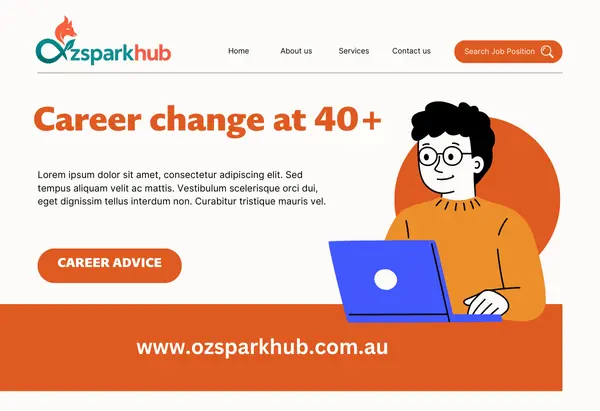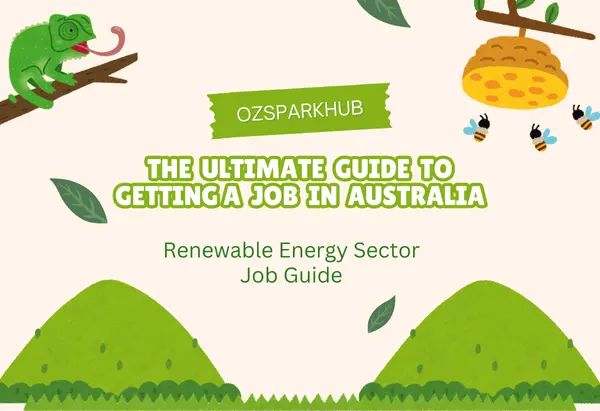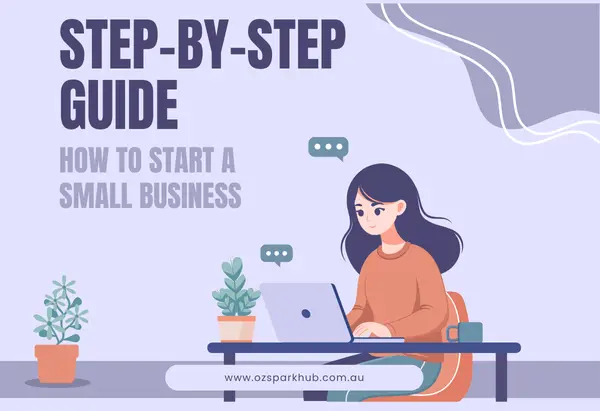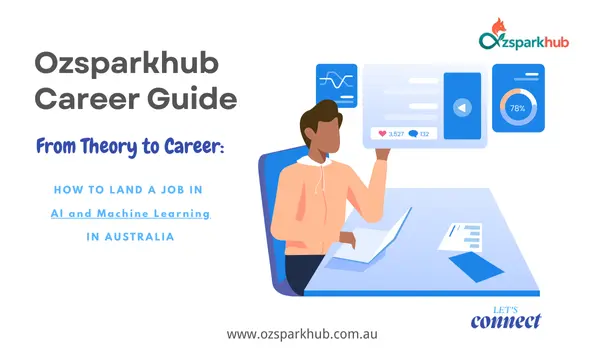Mutual Obligations Exemptions 2025: Complete Guide to Temporary Relief
Life happens. Sometimes you simply cannot meet your mutual obligations due to illness, crisis, or circumstances beyond your control. Yet many job seekers don't know they can get temporary exemptions that protect their payments while they deal with life's challenges.
This comprehensive guide explains every type of exemption available in 2025, how to apply, and what evidence you need.
Quick Answer: Can You Get an Exemption?
YES, if you have:
- 🏥 Medical condition (physical or mental health)
- 💔 Major personal crisis (death, separation, homelessness)
- 🚨 Domestic violence situation
- 👶 Temporary caring responsibilities
- 🏛️ Legal obligations (court, jury duty)
- 🌊 Natural disaster impacts
- 🎓 Special circumstances approved by Services Australia
Exemption Duration: Typically ranges from several weeks to several months, can be extended with evidence
Types of Exemptions Available
1. Medical Exemptions (Most Common)
Temporary Incapacity
What qualifies:
- Illness or injury preventing work/job search
- Mental health conditions (depression, anxiety, PTSD)
- Recovery from surgery or medical procedures
- Pregnancy complications
- Chronic condition flare-ups
Duration: Several weeks to several months initially Evidence: Medical certificate required Extension: Possible with updated medical evidence
How to Get Medical Exemption:
Step 1: See Your Doctor
- Explain impact on ability to work/job search
- Be honest about symptoms and limitations
- Request medical certificate for Centrelink
Step 2: Medical Certificate Must Include:
- Your full name and CRN
- Diagnosis (or "medical condition" if sensitive)
- Start and end dates of incapacity
- Whether condition is temporary or ongoing
- Doctor's signature and provider number
- Date of examination
Step 3: Submit Certificate
- Upload via myGov/Centrelink app
- Fax to 1300 786 102
- Mail to Services Australia
- Hand in at service centre
Processing Time: Usually processed within a few business days
2. Major Personal Crisis Exemptions
Death and Bereavement
Immediate family member: Extended exemption period available Close friend/extended family: Several weeks exemption Evidence needed: Death certificate or funeral notice
Relationship Breakdown
Separation from partner: Extended exemption period available Domestic violence: Extended period initially Evidence: Separation certificate, AVO, or statutory declaration
Housing Crisis
Homelessness: Extended exemption period available Eviction proceedings: Several weeks exemption Evidence: Notice to vacate, shelter confirmation
Family Violence
Special category: Extended exemption period initially Extensions: Unlimited with ongoing risk Evidence: Police report, AVO, social worker letter, or self-declaration Privacy: Information kept strictly confidential
3. Caring Responsibilities Exemptions
Temporary Care Situations
- Child's serious illness
- Partner's hospitalization
- Elderly parent crisis
- Disabled family member needs
Duration: Several weeks to several months Evidence: Medical certificate for person being cared for Note: Different from permanent Carer Payment
4. Legal and Civic Duty Exemptions
Mandatory Attendance
- Jury duty: Full duration of service
- Court appearance: Day of appearance + travel
- Police matters: As required
- Immigration detention: Automatic exemption
Evidence: Court summons, jury notice, police documentation
5. Natural Disaster and Emergency
Automatic Exemptions
- Declared natural disasters (flood, fire, cyclone)
- Pandemic lockdowns
- Emergency evacuations
- Property damage preventing normal activities
Duration: Initial extended period, extensions available Evidence: Often automatic for declared disaster areas
6. Special Circumstances
Drug and Alcohol Treatment
Residential rehab: Full program duration Intensive outpatient: Partial exemption possible Evidence: Admission letter from facility
Cultural and Religious
Sorry Business: Indigenous cultural obligations Religious observances: Major events requiring travel Evidence: Community leader letter
Refugee and Humanitarian
Torture and trauma: Extended exemptions available Settlement issues: Initial extended period Evidence: Support service documentation
How to Apply for Exemptions
Method 1: Online (Fastest)
- Log into myGov
- Access Centrelink
- Select "Report Employment Income"
- Choose "Report a Change in Circumstances"
- Select exemption type
- Upload evidence
- Submit request
Method 2: Phone
Job Seeker Line: 136 240 Wait times: Usually 30-60 minutes Have ready:
- CRN and password
- Exemption reason
- Dates required
- Evidence details
Method 3: In Person
Visit Services Australia service centre Bring:
- Photo ID
- Evidence documents
- Medicare card
- Completed forms
Method 4: Via Employment Provider
Your provider can request exemptions for:
- Medical conditions
- Personal crisis
- Special circumstances
Note: Provider must support your request
Evidence Requirements by Exemption Type
| Exemption Type | Primary Evidence | Alternative Evidence |
|---|---|---|
| Medical | Medical certificate | Hospital discharge summary |
| Bereavement | Death certificate | Funeral notice, obituary |
| Domestic Violence | Police report, AVO | Support service letter, self-declaration |
| Housing Crisis | Eviction notice | Shelter confirmation, social worker letter |
| Caring | Medical cert for person cared for | Hospital admission, care plan |
| Natural Disaster | Automatic for declared areas | Insurance claim, emergency services report |
| Jury Duty | Jury summons | Court confirmation |
| Rehab | Facility admission letter | Treatment plan |
What Happens During an Exemption?
✅ You DO:
- Continue receiving full payment
- Keep healthcare card active
- Maintain rent assistance
- Stay registered with provider
- Can voluntary job search
❌ You DON'T Need To:
- Apply for jobs
- Attend provider appointments
- Earn activity points
- Do Work for the Dole
- Attend training courses
⚠️ Important:
- Report income if you work
- Notify when circumstances change
- Provide updates if requested
- Prepare for obligations to resume
Managing Your Exemption
Tracking Your Exemption
Check status via:
- myGov inbox
- Centrelink app
- Phone 136 240
- Ask your provider
You'll see:
- Start date
- End date
- Exemption type
- Any conditions
Extending Your Exemption
2 weeks before expiry:
- Assess if you still need exemption
- Gather new evidence
- Submit extension request
- Follow up if no response
Extensions granted if:
- Condition continues
- New evidence provided
- Genuine ongoing need
- Previous compliance good
Returning from Exemption
Gradual return options:
- Reduced obligations initially
- Part-time requirements
- Modified activities
- Phased return plan
Discuss with provider:
- Current capacity
- Suitable activities
- Support needed
- Adjustment period
Common Problems and Solutions
Problem: Doctor Won't Give Certificate
Solutions:
- See different doctor
- Explain Centrelink requirements
- Ask for referral to specialist
- Contact patient advocate
Problem: Exemption Denied
Solutions:
- Request review within 13 weeks
- Provide additional evidence
- Get advocate support
- Appeal to Administrative Appeals Tribunal
Problem: Provider Won't Support Request
Solutions:
- Apply directly to Centrelink
- Change providers if possible
- Lodge complaint
- Get advocacy help
Problem: Exemption Ending Too Soon
Solutions:
- Apply for extension ASAP
- Get updated medical evidence
- Explain ongoing impacts
- Request graduated return
Special Considerations
Mental Health Exemptions
Getting appropriate evidence:
- GP can provide certificate
- Psychologist report helpful
- Psychiatrist not always needed
- Mental health plan supports claim
Sensitive approach:
- "Medical condition" sufficient on cert
- Privacy protected
- Specialized assessors available
- Mental health line: 1800 375 776
Domestic Violence Support
Confidential process:
- Special trained staff
- Information not shared
- Safety planning available
- Can use different address
Additional support:
- Crisis payment available
- Rent assistance changes
- Parenting payment access
- 1800RESPECT: 1800 737 732
Pregnancy and New Parents
Options available:
- Pregnancy exemption (6 weeks before due date)
- Parental exemption (up to 6 months)
- Complications exemption (as needed)
- Breastfeeding considerations
Students
Study exemptions rare but possible:
- Exam periods (short-term)
- Placement requirements
- Study-related crisis
- Must show exceptional circumstances
Your Rights During Exemptions
You Have the Right To:
✅ Privacy about your circumstances ✅ Respect from staff and providers ✅ Review of decisions ✅ Support services access ✅ Information in your language ✅ Advocacy assistance ✅ Appeal unfair decisions ✅ Reasonable adjustments
Providers and Centrelink Cannot:
❌ Demand excessive detail about medical conditions ❌ Contact your doctor without permission ❌ Share your information inappropriately ❌ Refuse legitimate exemptions ❌ Discriminate based on exemption type ❌ Pressure you to return early ❌ Threaten payment suspension ❌ Ignore valid evidence
Frequently Asked Questions
How many exemptions can I have per year?
No set limit, but each must be genuine and evidenced. Multiple exemptions may trigger review but are allowed for legitimate ongoing issues.
Can my payment be cut during exemption?
No, your payment continues in full during approved exemptions. Only income from work affects payment rate.
What if my doctor charges for certificates?
Unfortunately, charges are legal and vary by practice. Some bulk-billing doctors don't charge. Crisis payment may help with costs.
Can I work while on exemption?
Yes, but must report income. Working doesn't automatically cancel exemption if condition continues.
What if I'm refused an exemption unfairly?
- Request written reasons
- Apply for formal review
- Continue providing medical certificates
- Seek advocacy support
- Consider Administrative Appeals Tribunal
Do exemptions affect future claims?
No, legitimate exemptions don't negatively impact future claims or create "black marks" on your record.
Support Services and Resources
Crisis Support
- Lifeline: 13 11 14
- Beyond Blue: 1300 224 636
- 1800RESPECT: 1800 737 732
- MensLine: 1300 789 978
- Kids Helpline: 1800 551 800
Advocacy Services
- Welfare Rights: 1800 226 028
- National Debt Helpline: 1800 007 007
- Disability Advocacy: 1800 536 977
- Economic Justice Australia: ejaustralia.org.au
Centrelink Contacts
- Job Seekers: 136 240
- Complaints: 1800 132 468
- Multilingual: 131 202
- TTY: 1800 810 586
Legal Support
- Legal Aid: 1300 888 529
- Community Legal Centres: clcs.org.au
- Aboriginal Legal Service: 1800 019 900
Action Checklist
📋 If You Need an Exemption Today:
Immediate steps:
- ☐ Identify your exemption category
- ☐ Contact relevant support service
- ☐ Book doctor appointment if medical
- ☐ Gather any existing evidence
- ☐ Notify your provider
- ☐ Apply via myGov or phone
This week:
- ☐ Submit all evidence
- ☐ Follow up on application
- ☐ Keep records of everything
- ☐ Plan for exemption period
- ☐ Access support services
During exemption:
- ☐ Focus on recovery/resolution
- ☐ Keep evidence updated
- ☐ Plan return strategy
- ☐ Apply for extension if needed
- ☐ Maintain some routine
Key Takeaways
- Exemptions are your right when genuinely needed
- Evidence is crucial - get it early and keep copies
- Apply quickly - don't wait until crisis deepens
- Mental health is as valid as physical health
- Extensions are possible with ongoing evidence
- Support exists - use advocacy services
- Appeals available if refused unfairly
- Privacy protected for sensitive issues
Remember: The exemption system exists because the government recognizes that sometimes life circumstances make job seeking impossible or harmful. Don't suffer in silence - use these provisions when you genuinely need them.
Last Updated: August 8, 2025
Disclaimer: This guide provides general information about mutual obligations exemptions. Individual circumstances vary. For specific advice, contact Services Australia or a welfare rights advocate.
Need urgent help? If you're in crisis and need immediate assistance, call Lifeline on 13 11 14 or emergency services on 000.
Related Articles You Might Like
Mutual Obligations Exemptions 2025: Complete Guide to Temporary Relief
https://www.ozsparkhub.com.au/mutual-obligations-exemptions-guide-2025/





